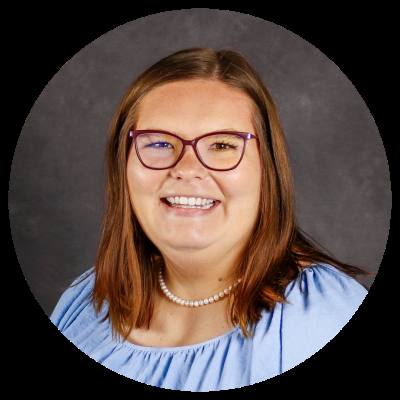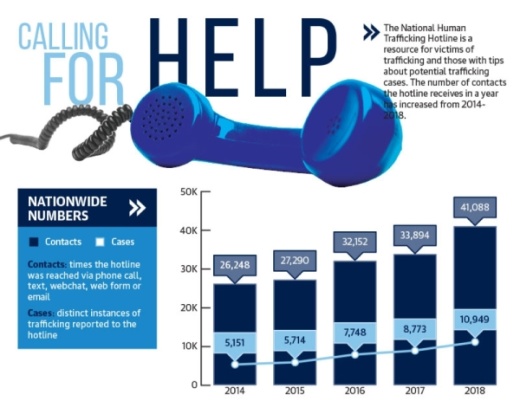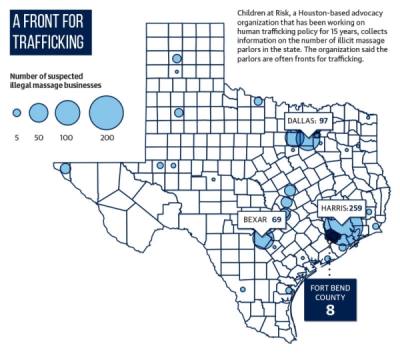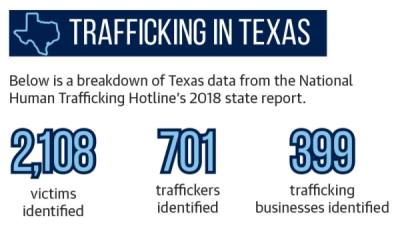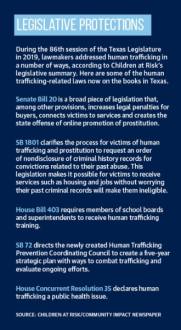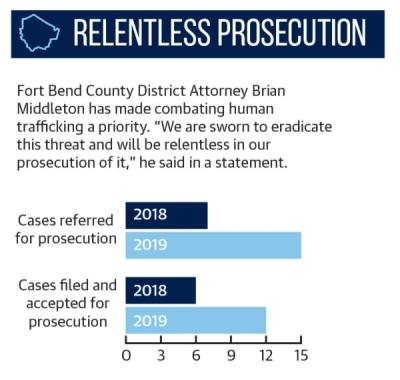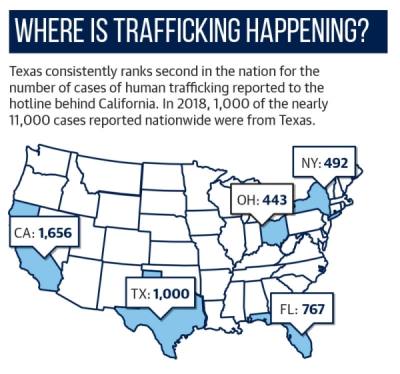But as what is traditionally seen as a hidden crime comes to light, so do problems with accurately quantifying the scope of trafficking as well as questions about effective ways to combat trafficking.
Human trafficking, and specifically sex trafficking, will happen as long as there is demand, said Bob Sanborn, CEO and president of Children at Risk, a Houston-based research and advocacy organization.
“What we’ve discovered is that across the state of Texas, most of the trafficking operations are happening in areas where there’s lots of money,” Sanborn said. “A lot of times, people think [trafficking] happens on the wrong side of town, but indeed, it’s happening in Fort Bend County. And, it’s all generated by demand.”
Understanding trafficking
A 2016 study from the University of Texas at Austin’s Institute on Domestic Violence and Sexual Assault found there are an estimated 313,000 victims of human trafficking statewide. Human trafficking is often categorized as either sex trafficking or labor trafficking.
In Texas there are approximately 79,000 minors who are victims of human trafficking and 234,000 victims of labor trafficking, according to the study.
John Nehme, president and CEO of Austin-based advocacy organization Allies Against Slavery who is also an author on the report, said this is the number of people in the state who would say, “Trafficking is something that has happened to me.”
“It’s not how many kids are under the active control of the trafficker today, or how many confirmed cases there are,” Nehme said. “It’s a bit more of a subtle nuance there, but it’s an important one because I think people hear that number and they get shocked.”
One challenge facing people who work to combat trafficking is a lack of data that quantifies how big of an issue it is.
“One of the clear gaps is a source to go to that’s authoritative and credible; that helps us actually articulate what the issue looks like where we live,” Nehme said. “It’s hard to adequately address an issue that we can’t adequately measure.”
Children at Risk tracks illicit massage parlors throughout the state, which Sanborn said are often fronts for trafficking. That organization identified eight such parlors in Fort Bend County in 2018.
A 2018 report from Children at Risk shows 35,000 Texas children attend school within 1,000 feet of a suspected illegal massage business and 900,000 schools in Texas are located within a mile of one of these businesses.
The National Human Trafficking Hotline, a resource for those experiencing trafficking or those with tips about potential cases of trafficking, boasts one of the largest publicly available data sets on the issue.
In 2018, the hotline was contacted 41,088 times. Of those reports, the hotline determined there were 10,949 cases—or distinct situations of trafficking. One thousand of the nearly 11,000 cases were from Texas.
While the number of contacts made and cases reported to the hotline has steadily risen since 2012, experts are wary to say this means there is more human trafficking, and instead attribute the increase to more awareness of trafficking.
Child Advocates of Fort Bend, a local nonprofit that serves child victims of abuse, has also seen an increase in the number of trafficking cases it handles, said Fiona Remko, the program director of the Children’s Advocacy Center at CAFB.
“I think it’s probably happened on some level all along, that people are now just really realizing, ‘Oh, that’s what that is, that this child is actually being trafficked,’” Remko said.
Prosecuting trafficking
When Fort Bend County District Attorney Brian Middleton took office in 2019, he promised to make combating human trafficking in the region a priority.
As a result, the District Attorney’s office saw the number of cases under the umbrella of human trafficking double from 2018 to 2019. In 2018, six out of the seven cases referred to the DA were accepted for prosecution, whereas in 2019, 12 out of 15 referred cases were accepted.
In 2018 and 2019 together, the DA’s office investigated 138 human trafficking and exploitation cases. Of those cases investigated, 78 were referred for prosecution and 38 individuals were criminally charged with a trafficking-related offense.
County officials said it is important to be proactive when combating trafficking. Operation Freedom, a three-week undercover operation in June, in which the DA’s office was the primary investigator, resulted in the arrests of 64 individuals, according to the DA’s office.
“I want to commend...my friend District Attorney Brian Middleton,” Fort Bend County Judge KP George said at a county human trafficking awareness event in February. “He is taking the law to the fullest extent so that we can prosecute these bad people.”
And, Fort Bend County’s close proximity to Houston, one of the largest hubs in the nation for human trafficking, according to the U.S. Department of Justice, also muddles the picture.
Remko said many cases of that trafficking affecting people in Fort Bend County may actually end up being reported or handled in Harris County.
“Generally, what we see is that if a child leaves Fort Bend County and is trafficked in some form or fashion, it’s happening in Harris County,” Remko said.
Fighting trafficking
Ibrahim Khawaja, Fort Bend County’s first assistant district attorney, said at the February event that a lot of officials across the county are paying lip service to human trafficking because it is a hot button issue.
To ensure that Fort Bend County is actually prepared to fight trafficking he said the DA’s office has worked to avoid making this a political issue and has focused on educating prosecutors on how to prosecute these crimes.
Additionally in Fort Bend County, several politicians have made combating human trafficking a part of the campaign promises, and non-profits dedicated to human trafficking advocacy and victim services have cropped up.
Sanborn said his organization has been working on legislative solutions to fight human trafficking for 15 years. He urges politicians to develop a deeper understanding of the issue that goes beyond some of the common myths about trafficking.
“Everyone hates traffickers,” Sanborn said. “So, it’s not a strong political issue to say you’re against traffickers.”
In January, President Donald Trump issued an executive order stating the federal government will use its resources to prosecute known offenders, assist victims, and work to educate the public on preventive measures.
The executive order also works to coordinate different agencies of the government to improve their methodology for collecting and sharing data related to the prevalence of trafficking.
U.S. Rep. Pete Olson said he encourages elected officials to keep human trafficking at the forefront of their agendas and do what they can to make a difference locally.
“Don’t put it aside as some campaign issue that goes away when you win elections,” Olson said. “This is dang important.”


